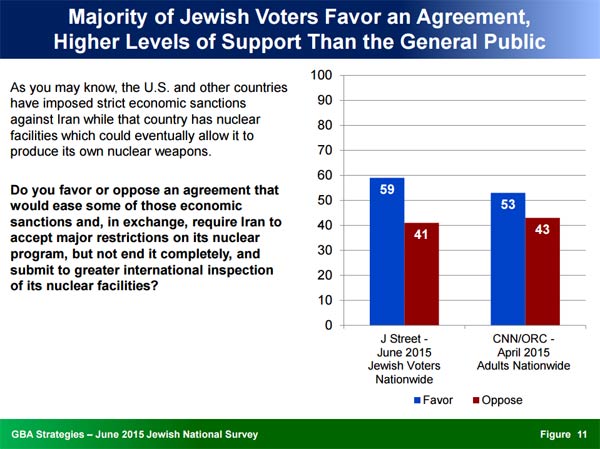The agreement negotiated between the P5+1 (United States, United Kingdom, France, Russia, China, Germany, and the European Union) and Iran is a good deal because it diplomatically achieves a halt to Iran’s real or imagined nuclear bomb program for ten to fifteen years . It offers assurances based on the most intrusive international inspections ever devised – ones far more comprehensive than current IAEA inspections to enforce Iran’s ratification of the Nuclear Non-Proliferation Treaty. In exchange, the UN will incrementally drop sanctions related to Iran’s nuclear program. No alternative to the present deal will stop an Iranian bomb and bring security to Americans, Israelis, and the world.
If the deal is rejected, Iran will be free to pursue its nuclear program, and that will trigger a U.S./Israeli military strike which could lead to a regional war and unimaginable human suffering. This is not an acceptable option. Although the agreement is focused on Iran’s nuclear program, it also marks a break in the cold war between Iran and the West originating in the 1979 overthrow of the Shan and 1980 hostage crisis. This nuclear deal could lead to Iran rejoining the community of nations, a development lead ing to a more peaceful world.
Almost the entire world supports the deal, as shown by the UN Security Council’s unanimous adoption of it, including a “yes” vote by Jordan, an Arab state now a Security Council member. In contrast, there are only two forces opposing the agreement: Israeli political leaders and Congressional Republicans and neo-con Democrats, groups that believe in military solutions to foreign policy disputes rather than negotiations. We find the arguments mustered to oppose the deal particularly unconvincing .
We hear that all Israelis oppose the deal, but that is not true. In fact, many prominent Israeli security leaders support the agreement. We also hear that Saudi Arabia and other Arab Gulf states oppose it, but that is also not correct. In truth, Saudi King Salman’s support was reported by the NY Times and other media.
Opponents of the deal say lifting sanctions will give Iran billions to back regional terrorism. Not likely. Iran made major concessions in its nuclear program to get the sanctions lifted because they had devastated its economy. Iranian leaders know their first responsibility is to use this money to improve the lives of their own people . The real reason U.S. neo-cons and Israeli hawks oppose the Iran deal is that it will enhance Iran’s regional role, a development that would restrain U.S. and Israeli military options in the Middle East. That is an outcome we support.
L. A. Jews for Peace; and LAJP Facebook page
—-
Graphic added by Juan Cole:
h/t Payvand Iran




 © 2025 All Rights Reserved
© 2025 All Rights Reserved